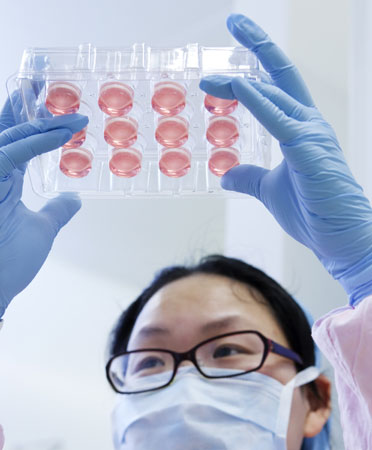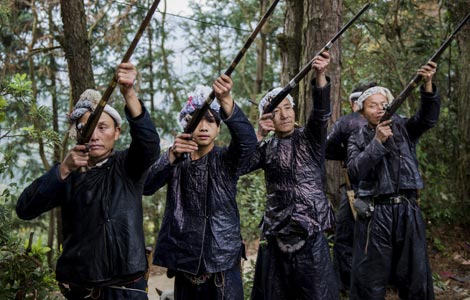Taking a humane look at cosmetics
Updated: 2013-12-20 08:48
By Xu Wei and Zhang Lei in Beijing (China Daily)
|
|||||||||||
|
|
Nation reconsiders rules for mandatory animal testing, report Xu Wei and Zhang Lei in Beijing.
China is considering ways to reduce animal testing of cosmetics.
The China Food and Drug Administration issued a draft last month related to changes in the registration and licensing of cosmetics, following a ban on the sale of cosmetics developed through animal testing from the European Union in March.
The draft stated that cosmetics made from ingredients that have already been tested and classified as safe will be exempt from animal testing.
Even though the draft regulation, set to come into force in June, does not apply to cosmetics manufactured outside the Chinese mainland, or to "special-use" products such as hair dyes, sunscreens or skin-whitening products, it's been hailed as a breakthrough by animal rights groups.
"The news from China marks a major milestone in our campaign and could constitute a significant watershed in our global efforts to end cosmetics animal testing worldwide," said Troy Seidle, the Humane Society International's Be Cruelty-Free director, in an online news statement.
The Body Shop, Lush, MooGoo and other companies, plus the United States-based non-profit organization Humane Society International, have campaigned for decades for the mandatory testing of cosmetics on animals to be phased out worldwide.
Many cosmetic companies, such as The Body Shop and Lush, have turned down lucrative opportunities in the Chinese mainland on ethical grounds because in China all imported cosmetics products are subject to mandatory tests that use animals as the subjects.
Wang Yiwen, a financial consultant at Deutsche Bank in Beijing, is a loyal customer of The Body Shop, but like all the brand's fans in China, she either has to rely on friends traveling overseas or on agents at online marketplaces to make her purchases.
"It's a pity they haven't officially entered the Chinese mainland market yet. Most people I know have to buy their products through online agents," said Wang.
"We are delighted to hear that the Chinese government is looking at its policies regarding animal testing. Many animals could be saved from pain and death by these changes. For Lush, it brings the day nearer when we can, perhaps, trade in China," wrote Hilary Jones, global ethical director for the UK cosmetics producer Lush Retail, in an e-mailed comment.
The Humane Society International estimates that around 300,000 animals are used every year in cosmetics testing in China. The country's stance on animal testing remains the biggest hurdle to the promotion of alternative methods, according to experts.
"Currently, China has no law or regulation requiring alternative methods to be made mandatory, so there hasn't been a huge uptake of those methods," said Jiao Hong, director of the food laboratory at Guangdong Entry-Exit Inspection and Quarantine Bureau.
Today's Top News
Nearly 90 hurt as London theatre ceiling collapses
Putin to pardon jailed tycoon
More help on way for foreign media
Beijing vows to boost Bolivia infrastructure
'Mutual interests beat differences'
New envoy 'must find right mix'
Yanukovich offers protesters nothing
China, Britain face new opportunities
Hot Topics
Lunar probe , China growth forecasts, Emission rules get tougher, China seen through 'colored lens', International board,
Editor's Picks

|

|

|

|

|

|






